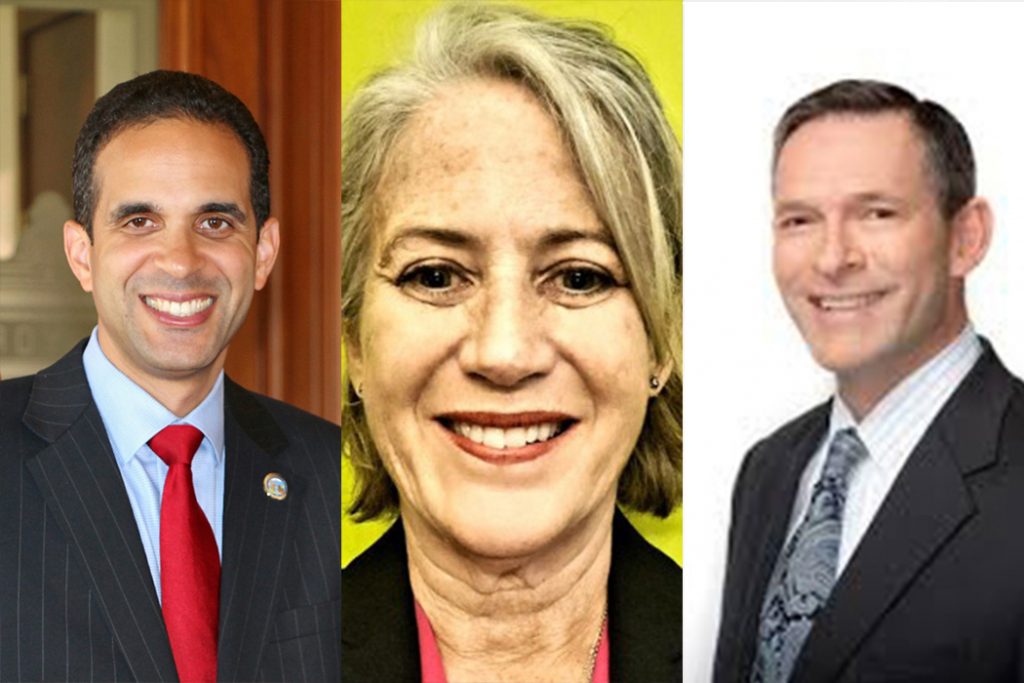The Boston College Latin American Law Student Association (LALSA) and the BC Law Democrats joined forces October 14 to host a panel discussion on the topic of Latino voters and the 2020 presidential election. Panelists weighed in on the importance of issues such as public health, voter suppression, and racial injustice and how these issues relate to the Latin American population.
Moderators Laura Caro Ruiz, president of LALSA, and Jessica Barbaria, vice president of LALSA, began by discussing the fact that Latino voters represent the largest racial or ethnic group eligible to vote in the 2020 election. “More than 14.6 million Latinos are expected to vote this November,” Caro Ruiz said.
The increased presence of Latino voters raises the opportunity for a historically marginalized group to have significant influence on the country’s future leadership. Yet there are concerns about certain factors limiting the impact of Latino votes.
Panelist Katherine Culliton-González, director of the Office of Civil Rights Evaluation (OCRE) at the US Commission on Civil Rights, said, “We’ve seen the floodgates open to discrimination in voting because of the decision to take away the preclearance provisions of the Voting Rights Act.”
Culliton-González pointed out a number of disparities in voting qualifications for and behaviors toward Latinos, such as poll taxing, literacy tests, and attempts at intimidation. “Almost all of those forms have been in play since the Shelby decision and then they’ve been exacerbated by the coronavirus,” Culliton-González said. In Shelby County v. Holder case, the Supreme Court in 2013 deemed the preclearance provisions from the Voting Rights Act of 1965 unconstitutional.
She also pointed out that learning how to vote in the US is not easy, especially for naturalized citizens who struggle to understand the English language. “There’s a lot of people voting from home without assistance. The biggest challenge is understanding the system in the first place, and trying to access the vote by mail without the barriers that have impacted the Latino community,” Culliton-González said.
She said that many mail-in ballots are written only in English, the result of election officials failing to prepare for the current circumstances. This limits Latino voting accessibility. Culliton-González said she hopes to see election officials learn from their mistake and increase accessibility for future elections.
The panelists also discussed the presence of conspiracy campaigns and the distribution of misinformation ahead of the election. Panelist Brent Wilkes, senior vice president for institutional development at the Hispanic Federation and former chief executive officer of the League of United Latin American Citizens (LULAC), brought up Cambridge Analytica and the Trump campaign’s efforts to persuade black and Latino voters to stay out of the election in 2016.
“They came up with these micro-targeted campaign materials that were specifically targeted to people based upon the buttons they thought they could press to get them not to turn out,” Wilkes said. “That’s where it started in 2016 and it’s only gotten worse.”
Data collection on voters has become more abundant in the last four years, and Wilkes was happy to note that current polling numbers show that efforts to reduce Latino voting turnout have not been successful in this election.
The bulk of the discussion centered around the challenges facing Latino voters and why it is so important to get involved and fight for change. In addition to highlighting barriers that display the unfortunate truth about voting system inequity, panelist Angel Taveras, mayor of Providence from 2011-2015 and the first Dominican-American mayor in Rhode Island, expressed hope for a brighter future as a result of the widespread mobilization of social justice warriors.
“What gives me a lot of hope is that people are peacefully marching in the streets across the country in numbers that we’ve never ever seen, that people are voting in numbers we’ve never ever seen, that people are more engaged in a very positive way, and that we’re seeing change happen because of it. That gives me a lot of hope,” Taveras said.
Photo, from left, Angel Taveras, Katherine Culliton-González, and Brent Wilkes


